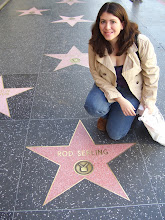Very few things make me as mad as when journalism is censored, especially here in the United States. Not allowing bloggers to go to executive sessions is comparable to censoring them.
I think that this is such an important to me because in high school my journalistic work was censored a lot. My senior year I served as editor of the school paper. I did some investigative work and discovered that my high school was locking the restrooms during the class periods, which is illegal according to New York health codes. I tried to get my story published in my school paper, but the principal and superintendent wouldn't let it be printed. So, I sent the story to The Buffalo News, who did print it. (I tried to find the whole text of the article, but you have to pay to access it. You can see a part of it here. Or just search www.buffalonews.com for Christine Pearl)
This situation worked out in my favor, because not only did way more people have access to my work in The Buffalo News than would have seen it in my school paper, but I also got paid for my work. It did give me a taste of what hate mail was like, however. But despite the scary letters I received and the way some teachers treated me for giving my school a "bad reputation," I realized that it was absolutely worth it to get my message out there.
Now, back to the Oregon story, I applaud SPJ for standing up for the rights of bloggers. It takes brave people to stand up for people who otherwise wouldn't have a voice.


